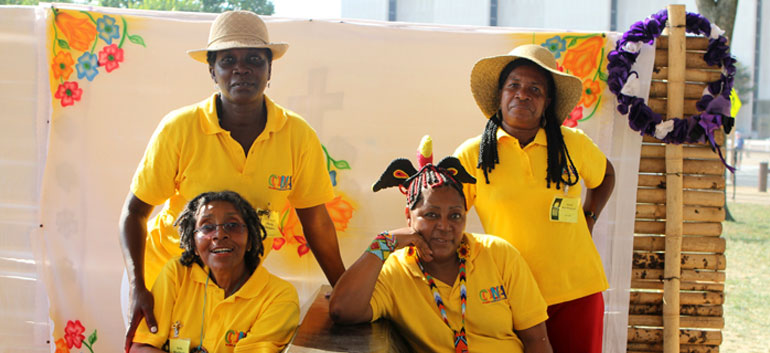Afro-Colombian dirges and funeral rites from the Pacific Choco state have been added to the official list that recognizes Colombia’s cultural heritage, the Ministry of Culture announced Tuesday.
Choco |
“Gualies,” “alabaos” and “levantamientos de tumba” (or “tomb-raising”) are rituals performed at funerals in Afro-Colombian communities of Colombia’s Pacific region that ensure the safe passage of a soul into eternity, according to the Ministry of Culture.
In the town of Medio San Juan, Choco, the ritual performed depends upon who has died. For children’s funerals “gualies” are performed, whereas “alabaos” assist an adult soul’s journey into the afterlife during the “levantamientos de tumba,” or “tomb-raising.”
Colombia’s Ministry of Culture announced that these funeral rituals are to be safe-guarded among the nation’s representative list of Intangible Cultural Heritage which seeks, among other things, to strengthen and maintain living traditions and values, as well as to protect the valuable knowledge inherited from past generations.
Guali
The guali is a joyous ceremony that includes lullabies, ballads, dances, games, rhymes, jokes and stories to farewell children from this world. It is also said that ancestors of Choco’s Afro-Colombian communities celebrated the death of a child because they were happy that they would not be living the cruelty suffered during slavery.
Alabao
The late Colombian musicologist Luis Antonio Escobar likened the “alabaos” to Gregorian and Catholic chants that originated in Medieval times and also sung without accompanying instruments, according to Colombia’s El Tiempo newspaper.
The “tomb-raising”
The tomb-raising begins on the day of burial and lasts nine days. For first eight days, family and friends gather every evening at 6PM for special prayers. This tradition is still widely practised in rural areas, yet is becoming less common in urban areas.
The tomb-raising involves much crying and screaming by the family of the deceased as this is the very painful final farewell.


